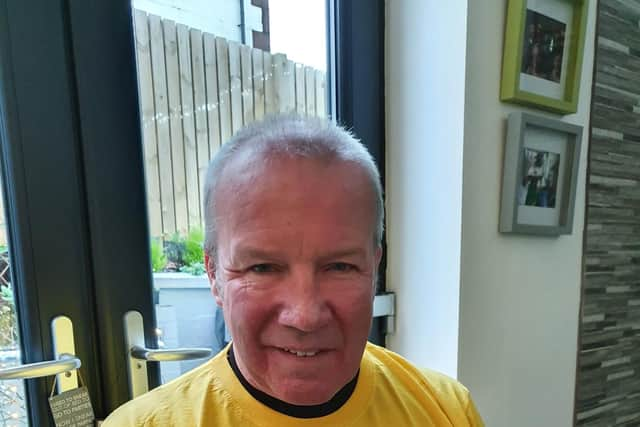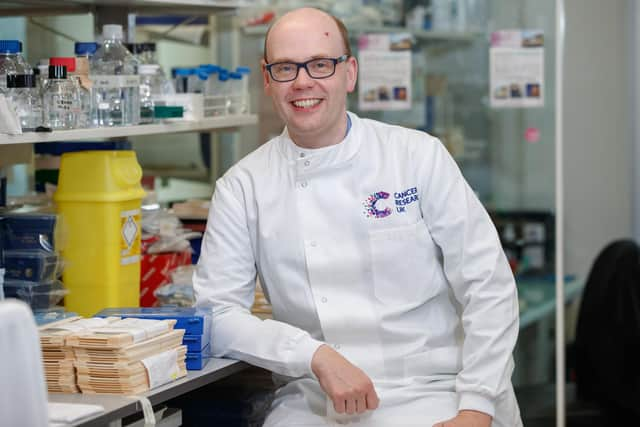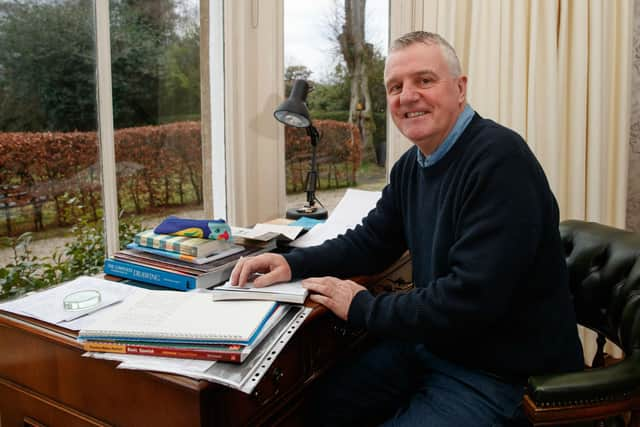World Cancer Day: Fears of mental health 'timebomb' as cancer waiting lists continue to grow
and live on Freeview channel 276
Cancer Support Scotland said it was seeing an unprecedented surge in patients seeking help and guidance to cope while waiting to get through pandemic-induced backlogs.
It comes as the Scottish Liberal Democrats demanded the Scottish Government set out a timeline for when cancer waiting time targets would be met.
Advertisement
Hide AdAdvertisement
Hide AdFigures from Public Health Scotland show that in the three months to October, no health board in Scotland met the Government target of 95 per cent of patients beginning treatment within 62 days of referral.


Meanwhile on World Cancer Day the UK Government declared a “national war on cancer” to combat Covid backlogs in England.
Rob Murray, chief executive of Cancer Support Scotland, labelled current cancer waiting times a “national disgrace”, and said patients in Scotland are being “failed” by a lack of mental health support.
"A cancer diagnosis can be a very difficult thing to cope with,” he said.
Advertisement
Hide AdAdvertisement
Hide Ad“Not only are you facing a disease that is going to completely change your life, but you are also facing having to come to terms with what lies ahead.


"Lockdown has created a mental health crisis in Scotland.
“People couldn't turn to family or friends for support, and more and more reached out to us for counselling and the other coping techniques we specialise in.”
Mr Murray called on the Scottish Government to “step up” to address waiting lists and provide funding so charities like Cancer Support Scotland can expand their services.
Jim Stewart, 61, waited 18 months for a colonoscopy on the NHS.


Advertisement
Hide AdAdvertisement
Hide AdMr Stewart, who was diagnosed with stage three bowel cancer five years ago, was due to go through final checks in 2020 to determine whether his treatment had been successful.
He went through an MRI scan and blood tests in February, but his colonoscopy, scheduled for May 2020, was cancelled.
Mr Stewart was told repeatedly he was on a waiting list, and eventually had the colonoscopy this week.
It was an “emotional” experience, he said, as he received the good news the cancer had not returned.


Advertisement
Hide AdAdvertisement
Hide AdBut the 18-month wait took its toll on Mr Stewart’s mental health.
He had fears the cancer may have returned without him realising, and returned to bad memories of having been diagnosed the first time.
“After 12 months, 14 months, it starts to grind at you,” he said.
“It eats away at your brain to think you could be sitting there with this cancer growing, and nobody’s had a look for 18 months.”
Advertisement
Hide AdAdvertisement
Hide AdWhile he understood the need to prioritise Covid above all else in the early stages of the pandemic, Mr Stewart said he believed continued delays to cancer care would lead to deaths which could have been avoided.
“So many other stories will be worse than mine, because they were in the early stages of their cancer [when the pandemic began],” he said.
Liberal Democrat leader Alex Cole-Hamilton said early diagnosis and treatment were “crucial”. "The Scottish Government needs to undertake rapid work to assess the scale of the challenge,” he said.
“Then we need the Cabinet secretary for health to announce a timeline for when the key national cancer waiting targets will finally be met.
Advertisement
Hide AdAdvertisement
Hide Ad“We need to ensure that the knock-on effects of the pandemic do not do even more damage to people's health."
Ahead of World Cancer Day, Cancer Research UK also announced a £12 million funding boost for the charity’s Scotland Centre over the next five years.
The money will be used to accelerate work into diagnosing and treating cancers which are among the most prevalent in Scotland, including bowel cancer, mesothelioma, liver cancer and brain tumours.
Bowel cancer survivor Iain Kerr, 66, from Helensburgh, welcomed the new funding.
Advertisement
Hide AdAdvertisement
Hide AdMr Kerr was diagnosed in January 2014, but after surgery to remove his tumour and a bowel resection, carried out using a surgical procedure never before performed in Scotland, he was told he wouldn’t need any further treatment.
“As far as I’m concerned, research and screening saved my life,” he said.
He added: “If I had been diagnosed with cancer 20 years ago, the outcome might not have been the same for me.
“I’m so grateful for the treatment that saved my life. I’ve been given the greatest gift of all – more precious moments with my loved ones, including meeting my beautiful granddaughter, Jasleen.”
Advertisement
Hide AdAdvertisement
Hide AdA new type of robotic surgery also began at Glasgow’s Queen Elizabeth University Hospital this week.
Transoral Robotic surgery (Tors) may allow some patients with throat cancer to avoid radiotherapy.
Health secretary Humza Yousaf said the technology, which will be rolled out across the country, “shows the innovations we are putting into practice across Scotland to make a real difference to the lives of those being treated for cancer”.
In response to calls for more action and funding from Cancer Support Scotland, a spokesperson said the Scottish Government was committed to supporting and improving patient care.
Advertisement
Hide AdAdvertisement
Hide Ad“As part of our £18 million partnership with Macmillan Cancer Support, we are making Scotland the first country in the UK where all cancer patients will have access to a key support worker to receive dedicated financial, practical and emotional support,” they said.
The spokesperson added: “ The emergence of the Omicron variant of Covid-19 is adding to existing winter pressures, and health boards are having to make tough decisions.
“Cancer has remained our priority, ensuring treatment continues to be delivered safely to patients, based on their clinical priority.”
A message from the Editor:
Thank you for reading this article. We're more reliant on your support than ever as the shift in consumer habits brought about by coronavirus impacts our advertisers.
If you haven't already, please consider supporting our trusted, fact-checked journalism by taking out a digital subscription.
Comment Guidelines
National World encourages reader discussion on our stories. User feedback, insights and back-and-forth exchanges add a rich layer of context to reporting. Please review our Community Guidelines before commenting.
